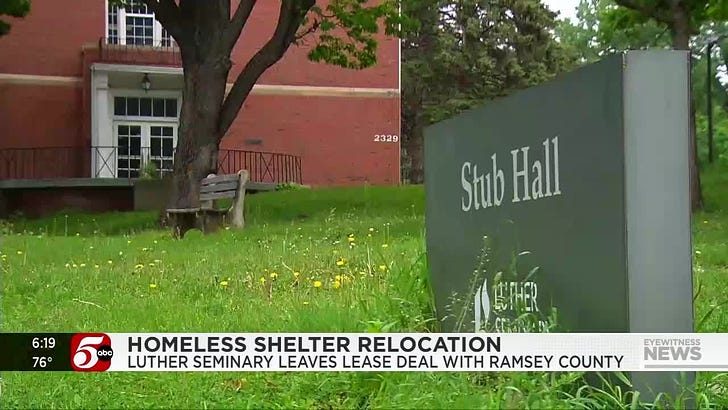
Discover more from Lutheran Confessions
If you survey a cross-section of Lutherans and ask them to name the special focus of Lutheran theology, the most common response you’ll receive is, “Grace.”
If you ask me to give you one word that indicates what is central to Lutheran theology, I’d offer an alternative: “Freedom.”
Admittedly, both words will do, and both do indicate aspects of Lutheran theology that, although not exclusively Lutheran, certainly key terms for Lutherans as compared to other traditions.
However, the reason I choose freedom over grace, and do so every time, is because I think grace is kind of pious and church-y whereas freedom is earthy and more secular.
There’s an old German word I learned while reading Dorothee Sølle—Freidigkeit. She says she learned the word from Friedrich Gogarten, one of her theology professors. It’s the term Martin Luther used to translate the Greek New Testament term parrhesia. Freidigkeit “is often rendered as free-oppenness, free-mindedness, venture-some confidence; Gogarten told us that it was a melding of ‘freedom’ (Freheit) and "‘brazenness’ (Frechheit)… but heaven help the student who interpreted this magnificent term with the clerical sentiment of ‘joyfulness.’ This would infuriate Gogarten, who utterly desired any kind of churchy drivel” (Against the Wind, 23).
I suspect what some find so troubling about “progressive” Christianity is its “bold freedom,” it’s Freidigkeit. There is a kind of freedom in no longer worrying overly much about salvation. It can be emboldening to slough off any and all threats that this or that action might “damn you to hell for all eternity.”
There’s even a colloquial adjective for this in English: “Devil-may-care.” This is particularly on-point for all those whose freedom has been constrained by the threat, regularly articulated in their communities, of “going to hell.”
Returning to the Greek term parrhesia Luther was translating, it can also be translated as “bold speech,” “free speech,” speech unbounded by normal rules either of polite conduct or context. In fact, true parrhesia is bound the other direction, bound not by the dictates of custom or concern, but rather bound to speak the truth for the common good, even at personal risk.
Whatever word you want to use for this kind of freedom, it’s sorely needed in a world threatened by authoritarianism and fascism, in religious communities where freedom of speech and action has been so dramatically curtailed through multiple systems: bourgeoise custom, capitalist demands, and systems of religious control just to name a few.
I think many Christians feel hemmed in on all sides, controlled by many forces. I think actually many Christians don’t even realize how much they are controlled. They sit around asking themselves whether doing or saying this or that will gather too much attention to them, or change a friendship, or untether a belief they’ve been clinging to. All these questions, spoken or not, chatter away at our souls.
But the reality of God’s Spirit leads us out of these kinds of false questions. It leads us into bold forms of truth, in action and speech. The old Lutheran phrase has always been, Sin boldly. The progressive Christian approach is probably more like “don’t let the religious bastards drag you down”—by which we might mean parts of Scripture that are misogynistic, parts of Christian tradition that maintained bigotry, modern forms of religiosity that were/are intrinsically racist, etc.
Instead, be free. Speak boldly. Engage in venture-some confidence “come hell or high water.”
Progressive church constantly risks this. It breaks church and social norms with some regularity. I’ve highlighted this already in an articulated oppenness to practices and traditions outside of Christianity. Progressive Christians are willing to be identified with and speak out for those anathematized by “traditional” Christians, whether that’s Queer people or Socialists or those in prison or those currently unhoused.
This kind of free speech sometimes (admittedly) pushes the envelope. A few years back some colleagues of mine actually published an Advent devotional titled “Fuck This Shit.” It’s still up online, you might even use it this year.
Keep in mind, Trump had just been elected. It was the prayer everyone was praying in progressive church circles even if they didn’t always say it out loud.
Swearing is important for a variety of reasons, not least of which because it is authentic speech, but also because it transgresses traditional class boundaries. There’s a certain kind of respectability enforced in middle-class culture, and part of that respectability is related to how we talk. Since the church is mostly in captivity to middle class sensibilities, I’m not surprised that one of the fastest ways for me to indicate I’m not “that kind of pastor” is simply to swear. It shocks the system in a way quite different than if you were at a construction site.
I’m in favor of free speech and think the church should indeed do away with the faux piety that worries about swearing more than it worries about people being homeless or starving.
But I also believe that this kind of bold freedom is, as the original Greek term signified, best exercised bound to the common good even at personal risk.
In Luther’s classic The Freedom of a Christian, he laid out a paradox:
A Christian is utterly free, lord of all, subject to none.
A Christian is utterly dutiful, servant of all, subject to all.
What Luther meant here is complex (it’s a paradox, after all, and also he wrote a whole book about it), but essentially because of who God is in relationship to us we are now free (in Christ) and then precisely in that freedom “in Christ” we become servants of all (like Christ).
Progressive Christianity can sometimes veer in a puritanical direction. I’ll admit that, and resemble that. However, a lot of the time these moves toward what is perceived as puritanical are really more exercises in Freidigkeit/Parrhesia. That is, they are bold exercise in freedom that are bound in neighbor love.
A specific example: Our church hosts a Queer Camp for queer youth because the wider Christian culture around us has regularly been passing bigoted laws that harm queer youth (trans youth in particular). The bold freedom I exercise as a Christian leader to speak out against such bigotry and to host radically caring spaces like Queer Camp arises out of this paradox.
I’m free to love queer youth just as they are without trying to convert or change them (this probably surprises most traditional Christians); I’m bound to love queer youth just as they are because I want to live like Christ and as free as Christ is.
I think the exercise of such bold freedom is an ongoing journey, especially for those previously traumatized in religious community that practiced multiple forms of social control. As I’ve mentioned, almost all of us have been shaped by some kinds of social control (bourgeoise normativity, the strictures of capitalism, cisnormativity, etc.) so in a way Freidigkeit is an ongoing way for all of us. But in particular I think those processing their religious trauma will find this whole topic both very freeing and also… hard.
—
I’d like to include here at the end a bit of meditation on that last part of the definition of parrhesia, the “even at personal risk” part.
It’s not easy to organize a religious community that is willing to take personal risks. Most progressives would like to be somewhat proximate to organizations that take such risks, but most of us will then also distance ourselves if things get too difficult.
Social justice organizers the world over know the powerful use their power to shatter organizing movements. They’re quite skillful at it, and know exactly the pressure points to push.
It’s hard to get those working in corporate offices to protest in solidarity with line workers if their income is at risk. It’s hard to speak the truth at home if your family will then shun you. Even pastors like myself who regularly engage in relatively more progressive action than moderate churches nevertheless do the mental calculations on whether this or that action, this or that form of speech, will result in us not being able to keep a roof over our family’s heads.
It’s also difficult to speak the truth for the common good if the voices inside your own head sing a chorus of self-doubt.
In the end, this is why I quite value the sometimes overlooked part of Luther’s paradoxical articulation of the freedom of a Christian. It’s specifically the freedom “of a Christian.” That is to say, we keep in mind that we are free “in Christ.” This becomes both source and norm of our bold freedom.
This is true both at the sociological and the eschatological level. At the sociological level our bold freedom resides in joining (and reminding ourselves that we are part of) the body of Christ, so that what may feel like personal risk is really simply solidarity with communities who are forced to live that risk all the time even if we are free to enter into the same risks only when we so choose.
The eschatological part is related to ultimate risk: that because are are in Christ there is no “ultimate” risk of taking personal risks for our neighbors. This last part is especially freeing, and was why Christians like Martin Luther King Jr. or Dorothee Sølle were not, in the end, worried about the personal risk, because they were in Christ and therefore already truly free.
And there’s nothing at all more boldly free than that.
Subscribe to Lutheran Confessions
Reflections from a progressive Lutheran pastor in the South.





Not sure if I can share this email if I’m not a paying subscriber? I need more information on subscribing.